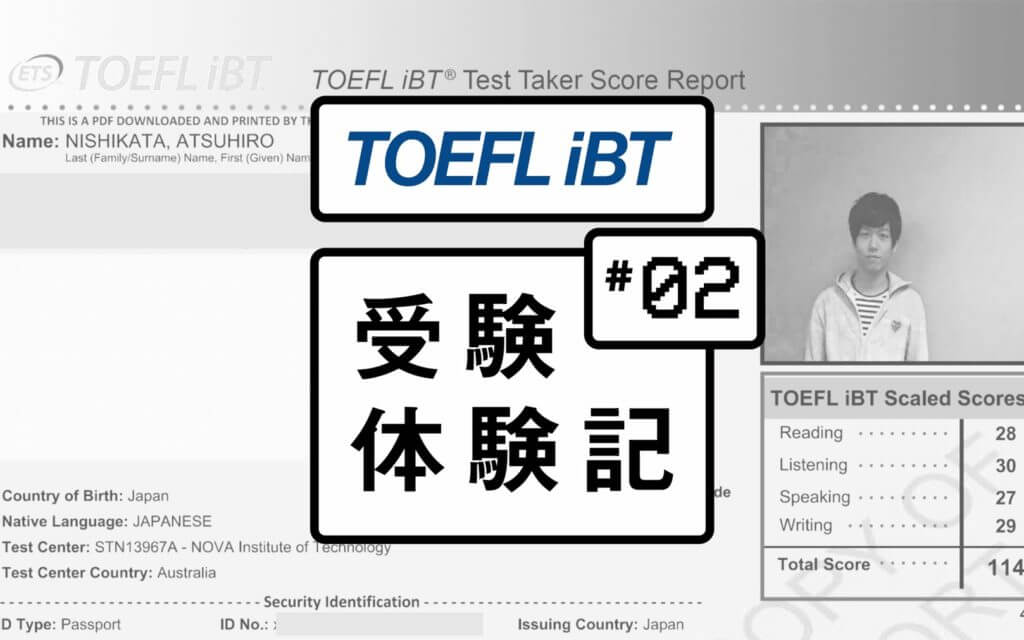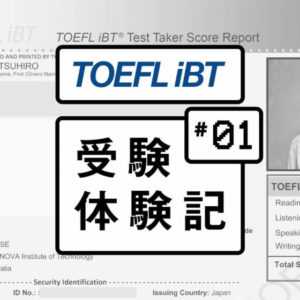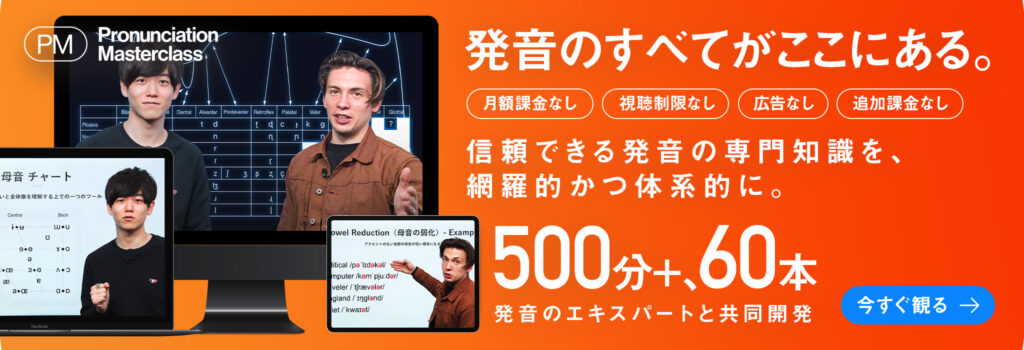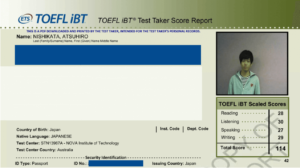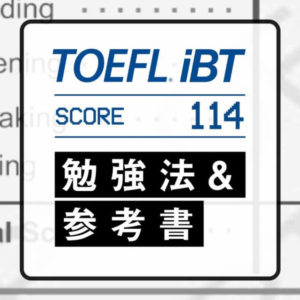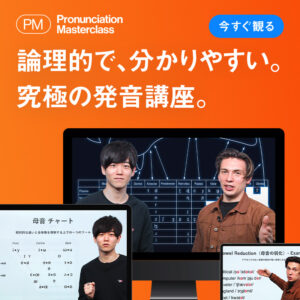こんにちは、Atsuです。
この記事は私のTOEFL ibt114点を取得した際の体験レポです!
私が社会人1年目にTOEFL114点を取った際の受験体験を
②TOEFL受験
③結果分析
の3つのフェーズに分けてお話ししています。
今回は「②TOEFL受験」と「③結果分析」を同時に行なっていきます。まだ【試験準備編】を見てない方は先にそちらを見ることをお勧めします!
-
-
TOEFL ibt114点を取った私の受験体験記①試験準備編
こんにちは、Atsuです。 今回は、私が社会人1年目の時にTOEFLで114点を取得した時の受験レポのような記事です(大 ...
Contents
試験結果
試験結果は以下のようになりました。
リーディング:28点
リスニング:30点
スピーキング:29点
ライティング:27点
個人的には118~120点を目標にしていたので、残念な結果となりました
受験記と結果分析を同時に行います。
実際に受験した時の様子と、結果を見ての原因分析についてお話しようと思います。
今回の受験はオーストラリアメルボルンでの受験ということ以外、日本で2010年に以前受験した際と比較しほぼ違いはありませんでした。指紋認証等もボディーチェックもなく(日本ではあるようですが)、来た順に入場、試験開始という流れでした。
リーディング〜甘く見て痛い目を見た
まずはリーディングの開始。やはり、あのTOEFL独特のフォントには目が慣れるのに時間がかかります。私だけかもしれませんが、最初のパッセージがどうしても読みにくい印象を受けてしまいます。
リーディング自体は難易度もTPOや公式とほぼ同じで、5分ほど残して終了しました。
結果は満点と思いきや、「28点」でした。自信があったわりに取れていませんでした。リーディングはほぼ勉強していなかったので、甘く見て痛い目を見たという感じでしょうか。
リスニング〜「メモを取らない戦略」がハマる!
次にリスニングセクション。今回の方針は【準備編】でお話したように「メモを一切取らない」というもの。メモを取るとどうしてもリスニングに集中してしまい、中々内容が入ってこないという現象が最低でも私には起きたため、本番でもこの戦略を採用しました。
また最後にダミーが出ました。「でっかい花びらで臭いにおいを放つ花の話」です。確か5年前にも同じものが出ました。こんなに何度何度も皆が知っているダミーを出して、一体ETSは何をしたいのかと考えながらも、しっかりと休みました(選択は適当)。
結果は「30点(満点)」でした。模試でメモを取っていた時は27~28でしたので、メモを取らない戦略が私には非常にマッチしたようです。
意味取りの練習にもなると思います。TOEIC等で聞きとり練習を仕上げて、TOEFLで意味取りのスキルを上げていくという考え方も良いかもしれませんね。
スピーキング〜要約のスキル不足を実感
スピーキングは恥ずかしながらパート1でミスをしてしまいました。
「学生はどうやったら友達が沢山作れるか」というような内容の質問で、クラブ活動を提案しましたが、「私が部活帰りに友達と話しながら帰ってて、そうすると絆があーだこーだ」と言っているうちに残り3秒。
結局、「そんな感じです。」のようなWrap upの仕方で終了。
改めてIELTSのように長々と話しても良いわけでなく、しっかりと短い時間内に要約しなくてはならない技術が重要な試験だなと感じました。これは練習あるのみですね。確かパート4と、パート5でも言いすぎ、言い忘れがあり減点されたと思っています。
結果、「27点」というスコアとなりました。27点という点数は、おそらく上述の各パートでの減点によるものと分析しています。
どちらかというと、しっかり要約するスキルや、実際に話す時に体系的に言うべきことを追えるノートテイキングなど、「試験での技術面(立ち回りの方法)」が今回のスコアに影響した要因としては大きいのかなと個人的には感じています。
ライティング〜Task1で聞き逃しがあったと予測
ライティングは特にテンプレートを作らず、自由に書きました。どの程度のレベルのライティングをしたかを例示するために以下練習の中で書いた文章をサンプルとして載せましたので参考にして下さい。
Nowadays, the quality of education has been increasingly integral to our lives. Some people believe that universities should increase salaries that university professors receive to enhance this quality, whereas some may disagree. In my view, it is imperative to pay higher remunerations to teachers at universities to improve the quality of education.
To begin with, money acts as a precursor to providing professors with incentives to perform better. If professors are given higher salaries, they will be more encouraged to take responsibilities in delivering well-developed lectures. For example, when I was in my first year at Tokyo University, which is one of the most famous universities in Japan, I was so disappointed by the quality of classes lead by professors. They used the same slides and materials every year and did not even change the content of exams. Although this made it significantly easy for students to achieve good results on the exams, they did not study a lot as they knew that they could pass the exams. Since I was a student who always wanted to get challenged by teachers and work hard, this fact smashed my expectation I had when I enrolled in the university. However, when I was in my second year, the university decided to increase salaries paid to its professors by approximately no less than 10 percent as the university was aware that low salaries were causing serious problems in the quality of sessions. Surprisingly, many of the professors changed their teaching styles and made their lectures more interactive and challenging. This example evidently portrays how remunerations can positively affect the quality of education.
Furthermore, gratifying professors with high salaries paves the way for sustainable operations of universities. For example, Hokkai University, which was one of the local universities in my hometown, merged with a different university in 2002 due to a low morale that university professors had because of low salaries. The university was in a healthy financial condition thanks to a huge amount of grants from the local government, but it did not use that money to motivate teachers. Since all the professors at the university were aware of that, their satisfaction level declined year after year and many started moving to a different college. Consequently, the university finally ended up having only two professors left. This resulted in the merger and definitely this was not a favorable outcome for either the university or students. Therefore, there is no doubt that paying high salaries to professors is the key to a successful operation of universities and also quality education.
In summary, the university should spend a lot of money on salaries that university professors receive. Not only will this motivate the professors but also this allows universities to have lower risk of losing the professors. Thus, we should encourage universities not to stint on professors' salaries to ensure that quality education is made available to students.
ちなみに「ライティングのアイディアのコツ」で話した通り、作り話もがっつり入っています。笑
-
-
英語のライティングでもうアイディアに困らない超マル秘方法【お金・時間・健康】
こんにちは!ATSUです。 今回は、英語のライティングのコツについてお話ししたいと思います。 「ライティングを書く時に何 ...
結果は「29点」でした。おそらくTask2は満点だと思います。Task1で自分では気づいていませんが聞き逃した部分があったと分析しています。
Task1はノートテイキングをしないと対処できないタスクですが、前述の通りノートテイキングはリスニングの集中力を下げてしまうため難しいです。是非また練習してチャレンジしてみたいなと思いました。
おわり
以上、「私のTOEFL受験体験記【受験・結果分析編】」でした!
留学目的でTOEFLを受験される方がほとんどだと思うので、満点を目指して受ける方というのはあまりいないからあまり参考にならないかなと思う一方で、高得点を目指す受験者の体験記も日本語ベースだとまだあまり少ないのかなとも思います。
TOEFLを受験される方もされない方も、今回の記事でなにかしらのベネフィットを受け取ってくれたら嬉しいです!
TOEFL100点を取るための勉強法、おすすめ教材についてはこちらにまとめていますので、興味のある方は是非。
-
-
【完全版】TOEFL100点を2か月で突破した勉強法と参考書を完全公開!
こんにちは!Atsuです。 今回は現在TOEFL iBTで114点を持つ私が、2か月で100点突破した時に行った勉強法を ...
